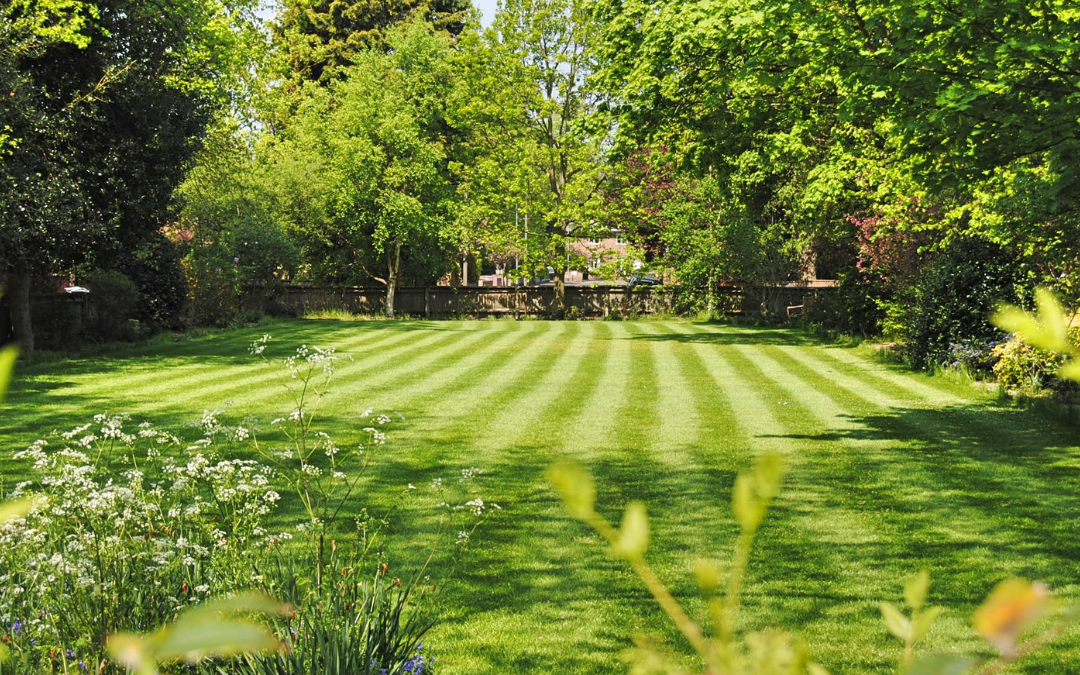Maintaining a lush lawn is a task that requires attention and dedication. For residents and property owners, understanding the significance of regular lawn care is crucial for creating an inviting outdoor environment. In cities like Houston, where the climate can vary dramatically, a lawn’s health can significantly impact a property’s appearance and value. Fortunately, in Houston, lawn care services are available to assist homeowners in achieving their landscaping goals, offering expertise in the specific needs of local grass types and soil conditions.
Enhancing Curb Appeal
Regular lawn care is pivotal in enhancing any property’s curb appeal. A well-maintained lawn is the foundation of a property’s aesthetic appeal, creating a solid first impression on visitors or potential buyers. The aesthetic appeal of a green lawn cannot be understated; it reflects the overall care and maintenance invested into a property. Regular mowing, edging, and trimming are essential tasks that keep the lawn tidy, while fertilization and weed control ensure the grass remains healthy and vibrant. Investing in these routine maintenance tasks can transform an average-looking yard into a standout community feature.
Furthermore, the impact of curb appeal extends beyond aesthetics. Properties with well-kept lawns tend to have higher market values and attract more interest when listed for sale. This connection between regular lawn care and property value underscores the importance of consistent maintenance efforts.
Promoting Healthy Growth
The health of a lawn is directly influenced by how regularly it receives care. Regular lawn maintenance activities such as mowing, watering, and aeration let the grass grow thick and strong, which in turn helps it combat weeds, pests, and diseases more effectively. Proper mowing techniques, including adjusting the mowing height according to the season and ensuring the mower blades are sharp, are crucial for preventing damage to the grass blades and promoting healthy growth.
Aeration, a process that includes creating small holes in the soil, is another critical aspect of lawn care that supports healthy growth. It allows air, water, and nutrients to penetrate the soil more effectively, encouraging more profound root growth and improving the lawn’s resilience to environmental stresses. By fostering a healthy root system, regular lawn care practices ensure that the lawn can better withstand the challenges posed by pests, diseases, and extreme weather conditions.
Improving Soil Health
The foundation of any healthy lawn is the soil in which it grows. Regular lawn care includes practices that improve soil health, such as aeration and applying organic matter through composting. These practices enhance the soil’s structure and fertility, making it more conducive to healthy lawn growth. Healthy soil retains moisture more effectively, reducing the need for frequent watering and enhancing the lawn’s drought tolerance.
Moreover, soil health is critical for nutrient uptake. Lawns growing in rich, well-balanced soil have access to the nutrients they need to thrive. Regular testing and amendment of the soil can correct pH imbalances and nutrient deficiencies, ensuring that the grass has the optimal environment for growth. Regular lawn care benefits the current lawn by focusing on soil health and ensuring that the ground remains fertile and productive for future plantings.
Environmental Benefits
Regular lawn care contributes significantly to the local ecosystem’s health. A dense, healthy lawn captures dust, pollutants, and carbon dioxide, which is vital in improving air quality. Grass also acts as a natural coolant, reducing surface temperatures and contributing to a cooler local environment, which is especially beneficial in urban areas.
Furthermore, lawns help prevent soil erosion by anchoring the soil with their root systems. During heavy rains, a well-maintained lawn can absorb water more efficiently, reducing runoff and the potential for flooding. This absorption capability underscores the importance of regular lawn care in managing water flow and preserving the quality of local waterways. By investing in routine lawn maintenance, homeowners contribute to broader environmental conservation efforts, showcasing how individual actions can positively impact the community’s ecological health.
Pest and Disease Management
Regular lawn care is essential for identifying and managing potential pest and disease issues before they become severe problems. Routine inspections can detect signs of infestation or disease early, allowing for timely intervention. Effective lawn care practices, such as proper mowing and watering, can prevent the conditions in which pests and diseases thrive, reducing the need for chemical treatments.
Integrated pest management (IPM) strategies, including biological control methods and environmentally friendly products, are essential to sustainable lawn care. Having a healthy lawn through regular care can minimize the need for pesticides and fungicides, protecting both the lawn and the surrounding ecosystem from potential harm.
Conclusion
In conclusion, the significance of regular lawn care cannot be overstated, especially in Houston, where lawn care service options cater to the unique challenges of the local climate. Regular lawn care creates vibrant, sustainable outdoor spaces by enhancing curb appeal, promoting healthy growth, improving soil health, offering environmental benefits, and managing pests and diseases. Homeowners who invest time and resources into maintaining their lawns can enjoy the numerous benefits that a healthy, well-cared-for lawn provides for themselves, their community, and the environment.









